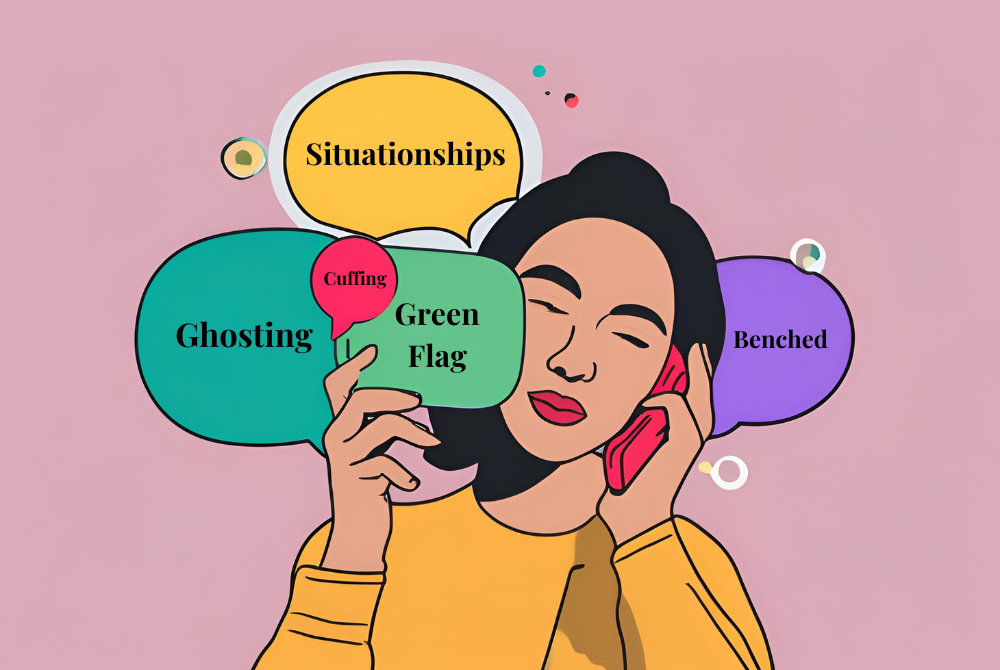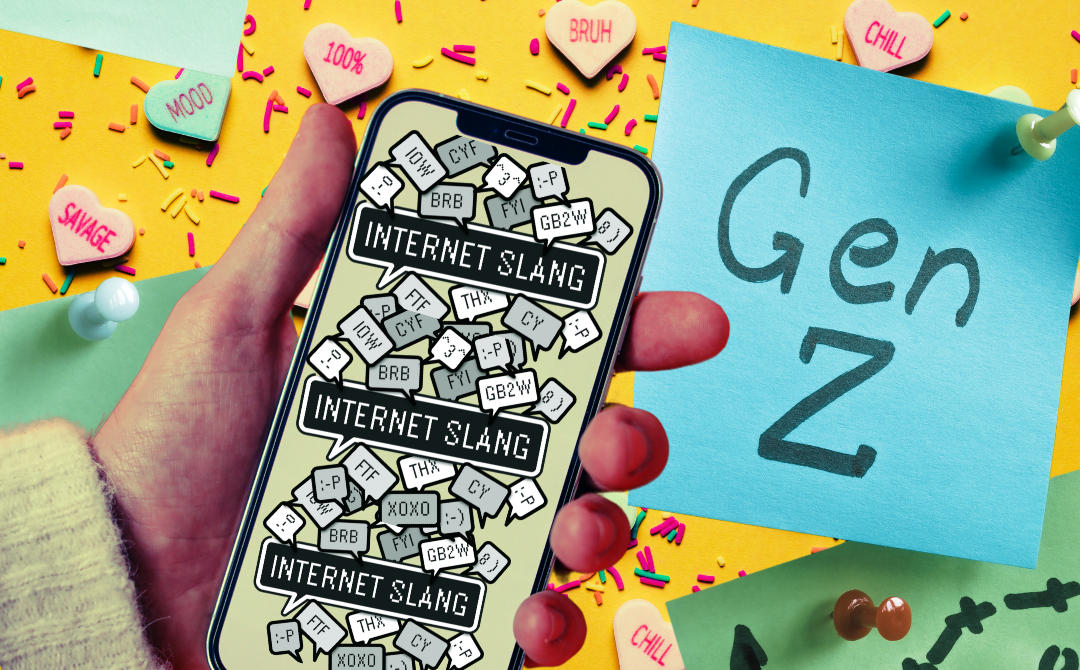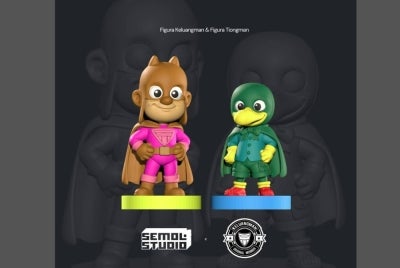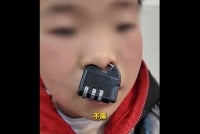Wait, what did they just say? A fun guide to Gen Z dating slang
Are you getting benched or cuffed?

DATING in the digital age has brought a whole new language of love, and if you’re not keeping up, you might find yourself lost in translation.
Gen Z, known for their creative way of expressing emotions and relationships, has coined a variety of slang terms that define modern romance in unique ways. From the dreaded "ghosting" to the thrill of a "hallway crush," these words encapsulate the highs and lows of relationships today.
Whether you’re just at the the talking stage, dodging red flags, or figuring out if you’re being breadcrumbed, understanding these terms can help you decode the complexities of modern dating.
So, if you’ve ever been confused by someone saying they’re "cuffing" for the season or debating whether a potential partner is a "keeper" or just another "situationship," this list is for you.
Here’s a breakdown of the most popular Gen Z relationship slang and what they actually mean.
GHOSTING
Ghosting is when someone suddenly cuts off all communication without any explanation. One day they’re texting you nonstop, and the next, they’ve disappeared like a ghost—no replies, no calls, and no closure.
Example in a sentence: "I thought things were going great, but then he completely ghosted me after our last date."
SITUATIONSHIP
A situationship is a relationship that exists in the gray area between casual dating and commitment. It’s more than a fling, but it’s not exactly official—there’s no clear label, and both people are just going with the flow (or avoiding defining things).
Example in a sentence: "I don’t even know what we are... it’s like we’re in a situationship, but neither of us wants to have ‘the talk.’"
LOVE BOMBING
Love bombing happens when someone overwhelms you with excessive affection, compliments, and grand gestures at the beginning of a relationship to gain control or manipulate emotions. It often feels like a whirlwind romance but can quickly turn toxic.
Example in a sentence: "He sent me flowers every day and kept telling me I was ‘the one’ within a week—weird love bombing vibes."
TALKING STAGE
The talking stage is the pre-dating phase where two people are getting to know each other but haven’t officially defined their relationship yet. It’s a make-or-break period where interest can either grow or fade away.
Example in a sentence: "We’ve been in the talking stage for two months, and I’m starting to wonder if he actually wants to date or just keep things casual."

EYE CANDY
Perhaps this isn't exactly a "new term" as the older generations would know this too. Eye candy is someone who is extremely attractive but may not necessarily have much depth beyond their looks. It’s often used to describe a crush based solely on appearance.
Example in a sentence: "I don’t think he’s my type long-term, but he’s definitely some nice eye candy at the gym."
HALLWAY CRUSH / AIRPORT CRUSH
A hallway crush (or airport crush) refers to someone you find attractive in passing—like a stranger you see regularly at school, work, or the airport—but never actually talk to. They’re just a fleeting admiration.
Example in a sentence: "There’s this guy I see in the library every week, but I’ve never spoken to him—total hallway crush situation."
KEEPER
A keeper is someone who has long-term potential in a relationship. They’re loyal, caring, and possess the qualities that make them worth holding onto.
Example in a sentence: "He surprises me with my favorite coffee, listens to me rant about my day, and always checks in—he’s definitely a keeper."
RED, GREEN, BEIGE AND PINK FLAGS
A red flag is a warning sign of toxic or problematic behavior that could spell trouble down the road. For example, if your partner is constantly dismissive of your feelings or disrespects boundaries, that's definitely a red flag.
On the other hand, a green flag is the complete opposite—it represents a positive trait or behavior that indicates the relationship is healthy and built on trust, like when your partner listens to you and supports your goals.
In contrast, a beige flag refers to a neutral or slightly odd habit that doesn’t necessarily signal a major issue but might be a bit boring or peculiar, like how your partner always has to have their food arranged a certain way before eating.
A pink flag, meanwhile, is a mild concern that could potentially grow into something problematic if not addressed, but it’s not yet serious enough to raise alarms—like when your partner’s jealousy seems a bit over the top but doesn’t necessarily affect the relationship in a big way just yet.
Example in a sentence: "Him being rude to waiters? Huge red flag. But remembering my coffee order? Definite green flag!"
ICK FACTOR
The ick is a sudden and intense feeling of repulsion toward someone you were previously attracted to. It can be triggered by the smallest things, like how they chew or text. Once you get the ick, it’s hard to come back from it.
Example in a sentence: "I was really into him, but then I saw him running weirdly, and I just got the ick."
CUFFING
Cuffing season refers to the time (usually in colder months) when people look for a temporary relationship to keep them company during the winter. It’s not always about long-term commitment but more about avoiding loneliness.
Example in a sentence: "It’s getting colder, and suddenly, all my single friends are trying to find someone—it’s definitely cuffing season."
BENCHING
Keeping someone on the sidelines as an option without fully committing to them. It’s like putting someone "on the bench" while pursuing other romantic interests.
Example in a sentence: "I feel like she only texts me when she’s bored—she’s totally benching me."
BREADCRUMBING
When someone leads another person on by giving them just enough attention to keep them interested but never fully committing. They "drop breadcrumbs" of affection but never a full loaf.
Example in a sentence: "He only texts me once a week with flirty messages but never makes plans—classic breadcrumbing move."
POCKETING
When someone keeps you a secret from their friends, family, or social media. They avoid making the relationship public, often indicating commitment issues or a hidden agenda.
Example in a sentence: "We’ve been dating for months, but I’ve never met any of his friends—am I being pocketed?"
ZOMBIEING
Meaning: When someone who ghosted you suddenly reappears in your life, acting as if nothing happened. They come back from the dead—hence, "zombieing."
Example in a sentence: "She ghosted me months ago, but now she’s suddenly liking my posts—total zombie move."
DRY TEXTING
When someone sends short, boring, and unenthusiastic responses in conversations, making it feel like they’re not interested. It’s the opposite of engaging texting.
Example in a sentence: "I’m trying to have a fun convo, but all he says is ‘ok’ and ‘lol’—such a dry texter."
RIZZ
Short for charisma, "rizz" refers to someone’s ability to attract and flirt with others effortlessly. Having "good rizz" means being smooth in the dating world.
Example in a sentence: "Did you see how he flirted with her? He’s got an insane rizz!"
FUMBLE
To mess up a great romantic opportunity by making a mistake or taking someone for granted.
Example in a sentence: "She was perfect for him, but he fumbled the bag by not making a move."
SIMPING
Excessively crushing on someone or putting them on a pedestal, often to the point of self-sacrifice.
Example in a sentence: "He always buys her gifts and does her homework—he’s simping hard."
Whether you're spotting red flags, avoiding ghosting, or recognising a keeper, these Gen Z slang terms capture the reality of relationships today. So, which ones have you experienced?
Download Sinar Daily application.Click Here!















